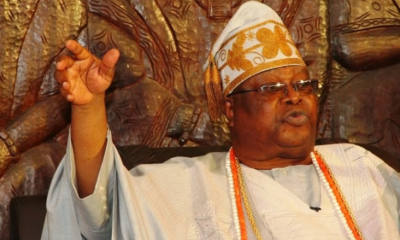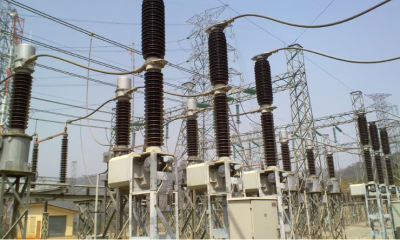The Minister of Communications and Digital Economy, Prof. Isa Pantami, says Broadband is the backbone of digital economy hence the National Broadband Plan expected to deliver a penetration rate of 70 per cent by 2025
Pantami disclosed this while delivering a keynote address at the National Strategic Mobilisation for the Actualisation of National Broadband Target of 70 per cent Conference and Exhibition, themed “Realizing the New Set Target of 70 percent of Broadband Penetration,” organised by the Association of Telecommunications Companies of Nigeria (ATCON) in Abuja.
Represented by the director, IT infrastructure solution department at the National Information Technology Development Agency (NITDA), Dr. Usman Abdullahi, Pantami said the penetration rate also targets a minimum of 25Mbps in urban areas and 10Mbps in rural areas, at a price, not more than N390 per 1GB of data (2 percent of median income or 1 percent of minimum wage).
READ ALSO: NCC acknowledges role of WATRA in creating policy, regulatory frameworks, others
“Broadband is the backbone of a digital economy, as it has been identified by industry experts that a 10 per cent increase in Broadband penetration will increase the Gross Domestic Product (GDP) of an economy by between 1.6 per cent and 4.6 per cent.”
He cited that as of July 2021, the broadband penetration was 39.79 per cent. He further added that the current evaluation of the achievements of the Broadband Plan, so far, revealed that broadband penetration stood at 42.27 per cent as of the first quarter of 2022.
The minister noted some of the challenges of broadband which include multiple taxation and regulation, non-conformity with agreed right-of-way (RoW) charges, difficulty in obtaining approvals and permits and burdensome taxes and levies. He said these burdens in the industry have stifled investment in telecommunication infrastructure.
He opined that this steady increase stemmed from relentless efforts made to address those challenges and the government is confident that the figure will continue to increase and surpass the set mid-term target of 50 per cent penetration by 2023.
“Our confidence in this is based on the strength of positive indices in 3G and 4G population coverage which are presently at 83.65 per cent and 62.55 per cent, respectively,” the minister said.
In his paper presentation, the director-general, NITDA, Mallam Kashifu Abdullahi, highlighted NITDA’s contribution towards the demand drivers of 70 per cent broadband penetration – NIRA free domain registration.
According to the DG, this initiative seeks to ensure collaboration between NIRA (.ng registry), NITDA and CAC towards getting more Nigerian businesses online by assigning a free .ng domain to every new business registered with CAC for the first 2 years.
READ ALSO: eNaira transaction: CBN seeks NCC’s support for use of USSD code
AdvertisementHe added that the Digital Indigenous Language Content policy is aimed at developing digital (educational, vocational, and entrepreneurial) content in local languages for citizen empowerment to leverage opportunities created by Broadband in digital literacy training and awareness.
Abdullahi said the goal of these initiatives is to develop or adopt an explicit digital literacy standard with coherent training and requisite certification for the duration of the plan.
“Our goal is to achieve, at least, 1 million developers with skills in various aspects of app development in the next 18 months. Our long-term objective is to champion the recalibration of the curriculum of institutions of higher learning which remain the largest pipeline in the production of digital talents.
Earlier in his remarks, the ATCON president, Engr. Ikechukwu Nnamani, maintained that the event is an interactive session and a platform where “we are exploring and taking inventory of where we are in terms of the broadband target that has been set. We all know this is critical to the digital economy we are trying to build, which is why the broadband plan must be implemented and achieved.”
He said this is something that will drive this country forward in a positive way and lead to development across all sectors of the economy.


 Business4 days ago
Business4 days ago
 Latest1 week ago
Latest1 week ago
 Politics4 days ago
Politics4 days ago
 Featured4 days ago
Featured4 days ago
 Business1 week ago
Business1 week ago
 Business4 days ago
Business4 days ago
 Latest3 days ago
Latest3 days ago
 Energy1 week ago
Energy1 week ago



